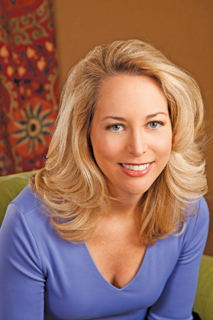The name that should have stayed a secret
Permanent link All Posts
Had her life gone the way she had expected it to, you would never have known Valerie Plame Wilson’s name.
But on July 14, 2003, her identity as a covert CIA agent was revealed by Washington Post columnist Robert Novak in an article about her husband, former U.S. diplomat Joseph Wilson. More shocking than seeing her name in print was the sense of betrayal she felt—her name had supposedly been leaked by Bush administration officials as retaliation for her husband’s op-ed in the New York Times called “What I Didn’t Find in Africa.” In it, Joseph Wilson suggested that the Bush administration had lacked reasonable cause to invade Iraq and had manipulated intelligence to justify it. After the leak, a momentous scandal ensued, which included a federal investigation.
In 2006, Plame Wilson retired from the CIA. A year later, she published Fair Game: My Life as a Spy, My Betrayal by the White House, which was later adapted into a film of the same name starring Naomi Watts and Sean Penn. She is currently working on a series of fictional spy novels.
The ex-CIA agent will be the featured speaker at this year’s Lion Luncheon, hosted by the Women’s Division of the Jewish United Fund of Metropolitan Chicago, to be held Thursday, Oct. 6. at the Fairmont Hotel. Recently, Oy!Chicago sat down for a phone interview with Plame Wilson.
Oy!Chicago: Have you always known that you wanted to work for the government? Why had you wanted to work for the CIA?
Valerie Plame Wilson: I never thought of it as ‘working for the government.’ That sounds boring! I thought of it as wanting to serve my country. My father had served in WWII and was a career Air Force officer, and my brother, a Marine, had been wounded in Vietnam, so I’ve grown up with this sense of public service being noble. I didn’t grow up thinking that I wanted to go into espionage. I just knew that I wasn’t really interested in corporate America, and I wanted to travel. I just wanted something different, so when I was given the opportunity to join the CIA, I was so grateful and honored.
Before your identity was revealed and your career ended, how had you imagined your career would go?
My grandest ambition was to retire as a Senior Intelligence Officer, and I was on my way to doing that… I loved intelligence; my focus was on terrorism and nuclear threats, and I thought the CIA did that best. So I thought that’s where I would continue.
You found out that your identity had been revealed when your husband showed you Robert Novak’s column in the Washington Post, outing you as a CIA operative. What were your first thoughts and feelings?
I was in complete dismay. I feared for the assets with whom I had worked, my network. I feared for my young children, and their security. I knew my career was over. I felt outraged, and I just couldn’t believe that Novak had gone ahead and done that. It was incomprehensible.
What lesson do you think the general public, the people of the United States, should learn or understand from your experience, particularly about trusting the government?
It’s about power and holding your government to account for their words and deeds. I don’t feel that public officials should use their positions to pursue political enemies. In the grander scheme, in the decade since 9/11 and the War on Iraq, this is a small but important piece of that tale.
Joe wasn’t throwing Molotov cocktails. He wrote an op-ed in The New York Times which questioned the [Bush] administration and how they manipulated information to get the country into war with Iraq. It was very civilized. …And the reaction was to out me in retaliation, to belittle him, destroy his business, and destroy my career. Really, is that how our democratic society wants to conduct its dialogue? It’s certainly a cautionary tale.
You published your book with blacked out portions covering the information the CIA had said you couldn’t publish. What was the point you were trying to make?
The publisher made the decision to keep the redacted portions so that the reading public could see how extensively the CIA made their decisions about what could not be published. It was retaliatory. Nothing there was classified; there were no sources or methods. It was just an attempt by the administration to make sure the book would not be published.
Several years on, have you found meaning in your experience? Because you are doing many worthy things now, but your life certainly did not go the way you had planned it to.
My husband and I worked hard to rebuild our lives, personally and professionally – that’s why we moved away from Washington, D.C. I am grateful to still be able to work on nuclear proliferation issues, through Global Zero. Weirdly, this whole thing has given us a platform for us to speak about things that we care about deeply, such as post-partum depression for me.
What happened to us was so unexpected, and it marked our lives. But we have two small children that we want to raise well for them to be happy and contributing citizens. We’re not bitter. We’ve just moved on.
I’ve read that this experience has somehow led you to discovering your Jewish roots? Is that true?
Yes, definitely. I had done a lot of genealogical research on my [maiden] name “Plame,” and had hit a lot of dead ends. But as a result of this exposure, I was able to reconnect with some of my Jewish relatives.
Valerie Plame Wilson will be the featured speaker at the Lion Luncheon 2012, hosted by the Women’s Division of the Jewish United Fund.



.jpg)



